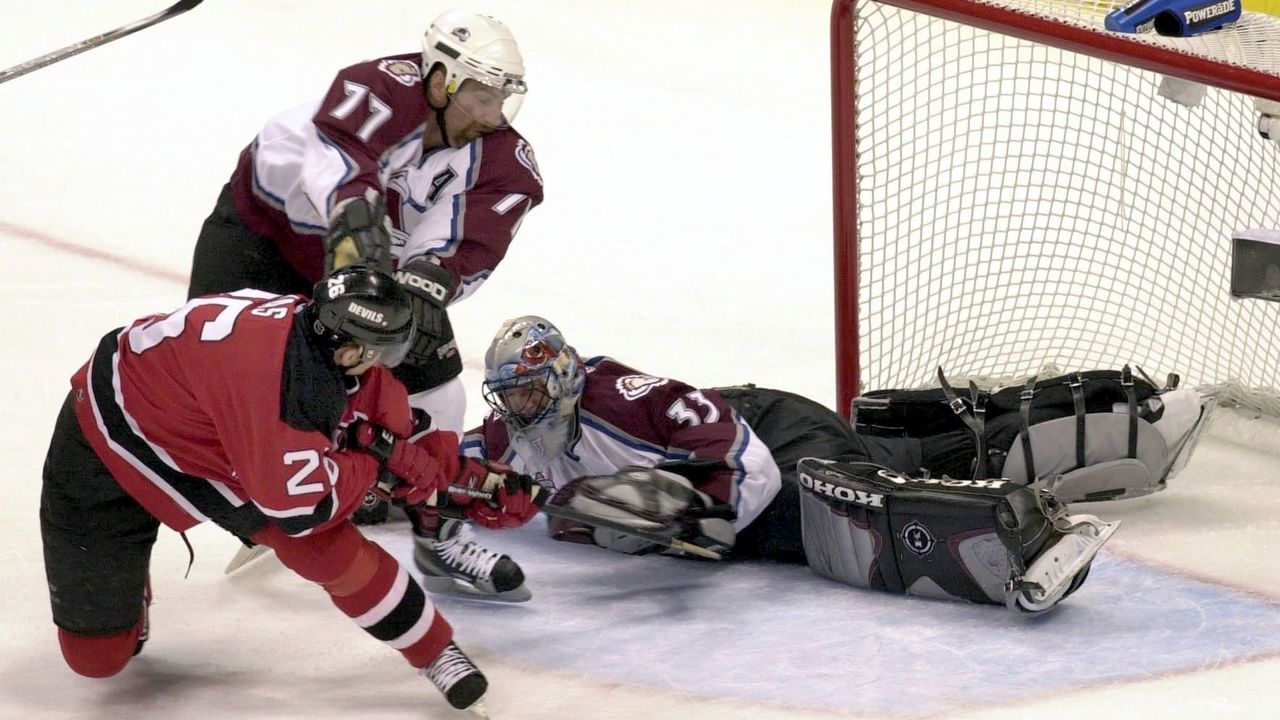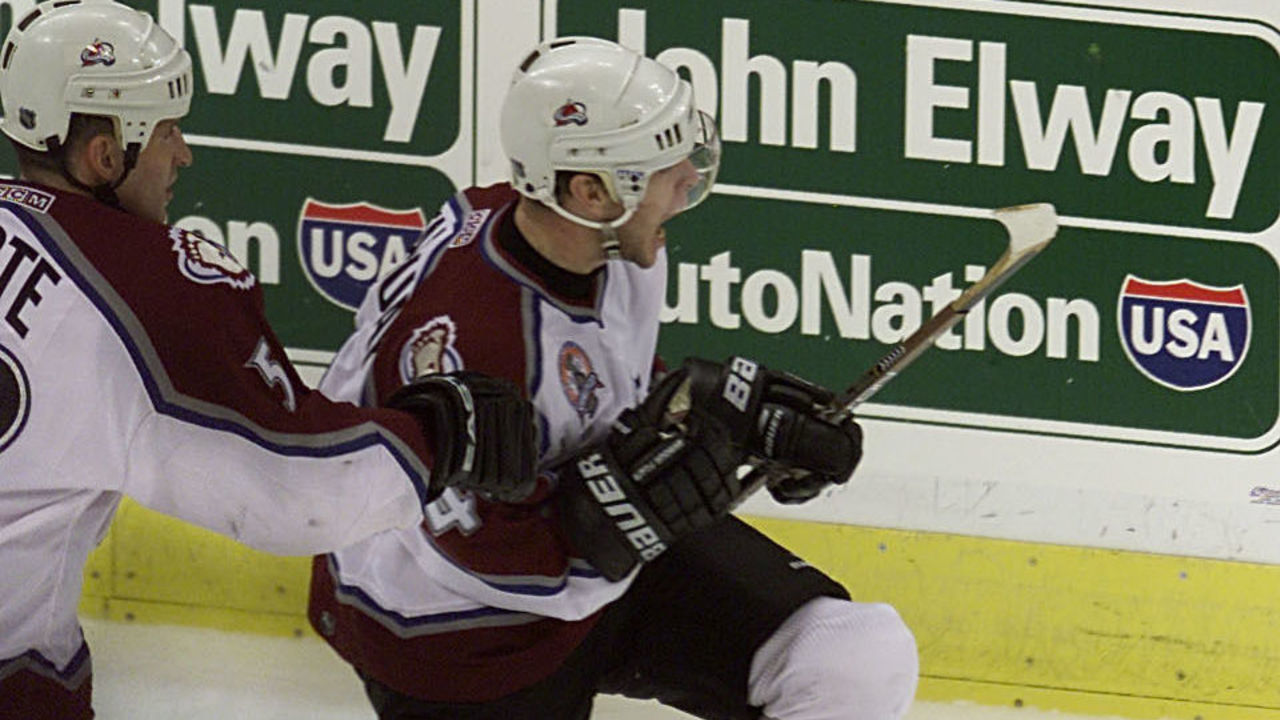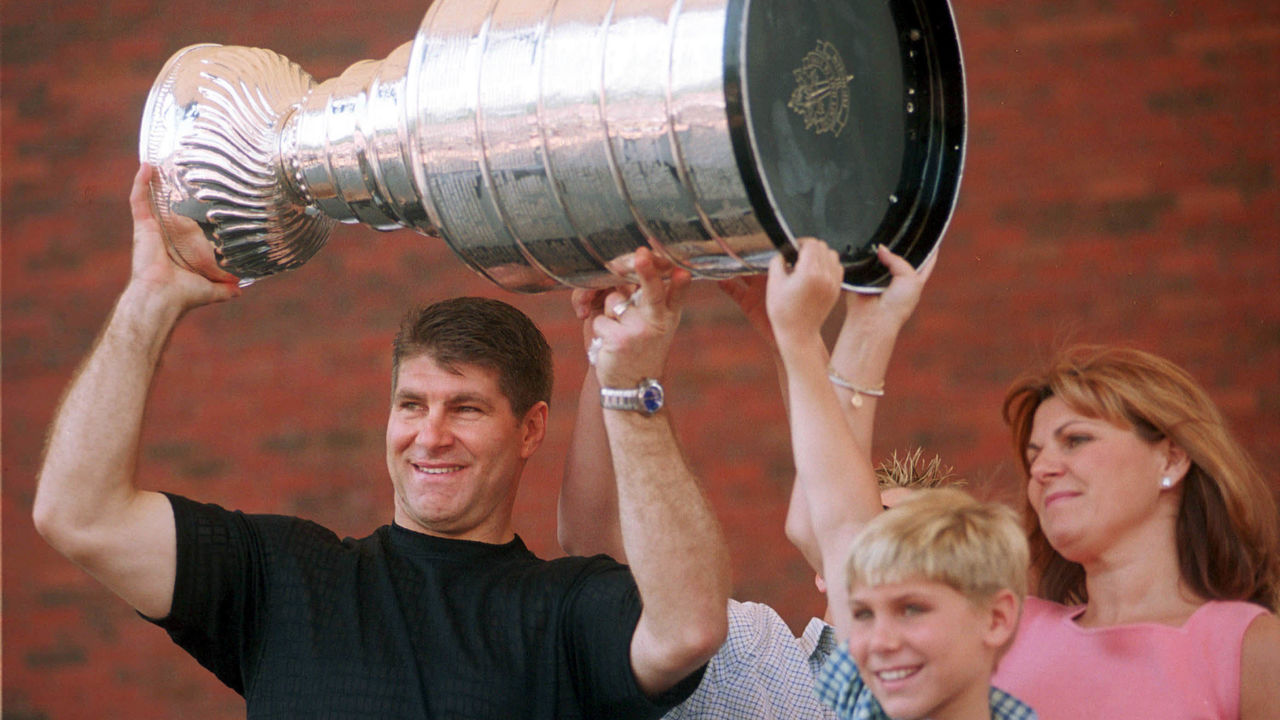Game 7s to remember: Bourque goes out a champion in 2001
The NHL should be deep into postseason action, but with the start of 2019-20 playoffs delayed, theScore's hockey editors are picking their favorite Game 7s from years past.
On Sunday, we're looking back at the conclusion of the 2001 Stanley Cup Final, which will be remembered most for a legendary defenseman finally winning it all.
The setup
The New Jersey Devils were the defending Stanley Cup champions and remained a formidable squad. They led the NHL in scoring, ranked among the league's best in goals against, and finished atop the Atlantic Division with the Eastern Conference's best record.
The Devils defeated the Carolina Hurricanes in six games in the opening round of the playoffs, required seven to edge the seventh-seeded Toronto Maple Leafs, and then dispatched the Pittsburgh Penguins in five in the conference final.
The Colorado Avalanche, meanwhile, clinched the Presidents' Trophy with a league-best mark of 52-16-10, led by captain Joe Sakic's 54 goals and 118 points, both of which ranked second in the NHL.
The Avalanche swept the Vancouver Canucks in Round 1, snuck past the seventh-seeded Los Angeles Kings in seven games, and then eliminated the St. Louis Blues in five to advance to the Cup Final.
The series
The Avalanche cruised to a 5-0 win in Game 1, but the Devils prevailed 2-1 in Game 2. Two nights later, Ray Bourque scored the game-winner as Colorado earned a 3-1 victory and a 2-1 series lead.
New Jersey stormed back by grinding out a 3-2 win on home ice in Game 4, then followed it with a 4-1 road victory in Game 5 that put the club within a single win of capturing consecutive championships.
But the Avalanche weren't finished. They forced Game 7 by shutting out the Devils 4-0 - in New Jersey, no less - on the strength of a three-point night from defenseman Adam Foote.
The game

The stars: In a series pitting two of the greatest goaltenders ever against each other, Patrick Roy outplayed Martin Brodeur over the first six contests. Brodeur had a pedestrian .871 save percentage over that span, while Roy entered Game 7 with a stellar .934 mark.
That trend continued in the decisive matchup: Roy stopped 25 of 26 shots he faced in a 3-1 victory, and was awarded the Conn Smythe Trophy as playoff MVP for an NHL-record third time.
Sakic also stepped up when it mattered most, setting up Colorado's second goal before lighting the lamp himself on a power play later in the second period.
Bourque played more than any other skater on either club except Foote (by nine seconds) in Game 7, logging a remarkable 29:35 at the age of 40.
The X-factor: Colorado was forced to play the winner-take-all affair without Peter Forsberg, the club's second-leading point producer during the regular season, who remained out with an injury as he had been since the conference final.
In his absence, on the biggest stage and with the season hanging in the balance, 21-year-old winger Alex Tanguay buried two of the Avalanche's three goals and helped to set up the other. Tanguay's big night didn't come out of nowhere - the winger produced 27 goals and 77 points in his second NHL campaign before the playoffs began. But the young forward had his best performance of the postseason in Game 7 of the Stanley Cup Final, and his star-caliber effort was critical to Colorado's triumph.

The key moment: While Tanguay's contributions were instrumental, Sakic's marker was the dagger. His league-leading 13th goal of the playoffs gave the Avalanche a 3-0 cushion, and it came less than 90 seconds after Tanguay's second of the game, swinging the momentum fully in Colorado's favor.
It was a dose of brilliance from "Burnaby Joe," who faked a shot from the faceoff circle and then wired home a perfect wrister up high on Brodeur.
The highlight
This game was loaded with future Hall of Famers, and as such, featured its share of skilled plays. However, it's most remembered for what happened once it was over.
After receiving the Stanley Cup from NHL commissioner Gary Bettman, Sakic immediately handed it to Bourque to lift, in what remains one of hockey's most enduring scenes.
Bourque had waited longer to do that for the first time than any other Cup-winning player in the history of the trophy, and no one can say he didn't earn it.
The fallout

Bourque retired shortly after bringing the Cup back to Boston, where he spent the majority of his career. Sakic won the Hart Trophy as the NHL's MVP, as well as the Ted Lindsay Award and the Lady Byng.
Colorado reached the Western Conference Final in 2002, but lost to the Detroit Red Wings in seven. Every game in that matchup was decided by two goals or fewer until Game 7, when the Red Wings crushed the Avalanche 7-0. Colorado was never the same after that, as head coach Bob Hartley was fired in December 2002, and Roy retired in May 2003.
The Avalanche made the playoffs in six of the eight years after winning their second title, but haven't qualified for the conference final since doing so in 2002. Meanwhile, the Devils avenged their Game 7 loss by claiming the Cup two years later with the same core. Impressively, they did so without their leading 2000-01 goal-scorer, Alexander Mogilny, who parlayed his 43-goal campaign into a four-year pact with Toronto.
New Jersey made 13 straight trips to the postseason from 1997 to 2010, though it took them until 2012 to return to the Cup Final, and the club hasn't won it all since 2003.